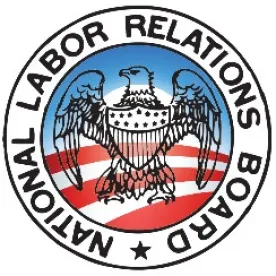A U.S. Circuit Court of Appeals partially upheld the Obama-era standard the National Labor Relations Board (NLRB) adopted for determining whether two entities are joint employers under the National Labor Relations Act (NLRA). Browning-Ferris Industries of Cal., Inc. v. NLRB, No. 16-1028 (D.C. Cir. Dec. 28, 2018). The case came before the Court on appeal from the Board’s decision in Browning-Ferris, 362 NLRB 186 (2015). In that case, the Board held it would not only consider a putative employer’s direct and exercised control, but also its indirect and reserved control over employees, when determining joint-employer status. The employer’s petition for review (appeal) of the Browning-Ferris decision was pending before the Court when the Board reversed Browning-Ferris in late-2017. The appeal resumed after the Board vacated its reversal and reinstated Browning-Ferris in early-2018. While upholding the Board’s indirect/reserved control standard, the Court found the Board misapplied the standard, and remanded the case for further consideration. Meanwhile, the Board has proposed to enshrine the direct/exercised control standard in its rules, which would effectively overturn Browning-Ferris yet again. The Board invited the public to submit comments on its proposed rule, now due by January 14, 2019. The Court’s decision contains some admonishments the Board likely will need to follow in promulgating its rule. (See our article, Joint Employment under NLRA: Interpreting D.C. Circuit Court’s Browning-Ferris Decision.)
The NLRB’s General Counsel (GC) criticized the Board’s proposed joint-employer rule, discussed above. Board GC Peter Robb made public comments stating the proposed rule “did not go far enough,” because, among several things, it fails to state how much control a business must have over the details of an employee’s work before the business is considered a joint employer. The “direct and immediate” control standard is insufficient, Robb stated, because it does not make clear, for example, whether that control must be exerted over all terms and conditions of work, or over just some.
The Board’s Strategic Plan for fiscal years 2019 through 2022, released jointly by NLRB Chairman John Ring and GC Peter Robb, announced four primary goals. “(1) achieving a 5% increase over each of four years in timeliness of case processing of unfair labor practice charges, (2) achieving resolution of a greater number of representation cases within 100 days of the filing of an election petition, (3) achieving organizational excellence and productivity, and (4) managing agency resources efficiently and in a manner that instills public trust.” In support of the Plan, the General Counsel issued Memorandum GC 19-02, “Reducing Case Processing Time,” which states how the Plan affects the Board’s regional offices and its various departments and divisions.
The NLRB’s General Counsel found an employer did not violate the NLRA by maintaining a broadly worded “civility” rule or by terminating an employee who violated the rule. Wilson Health, 09-CA-210124 (Adv. Mem. issued June 20, 2018, released Dec. 17, 2018). The employer’s rule required, among other things, that employees not complain about coworkers and “find[] solutions to problems rather than complaining about them or blaming someone for them.” An employee repeatedly complained about and spoke negatively about coworkers and was terminated for refusing to sign off on and violating the civility rule. The NLRB’s Division of Advice found the rule was a lawful “Category 1” rule under Boeing Co., 365 NLRB No. 154 (2017). The rule’s justification, maintaining civility, outweighed the rule’s negligible impact on employee rights, the Advice Division found. As a result, the employee’s termination did not violate the NLRA.
An employer cannot base its delay in reinstating unfair labor practice strikers on a contractual obligation with a temporary employee staffing agency, the Board held. Alaris Health at Castle Hill, 367 NLRB No. 52 (Dec. 21, 2018). After striking employees made an unconditional offer to return to work, the employer explained that it could not reinstate the strikers, because it contractually committed to staffing agencies supplying temporary replacements that it would guarantee the replacements’ employment for a number of weeks. The Board ruled that the employer’s refusal to reinstate the strikers based on the contracts with the agencies violated the NLRA. To find otherwise, the Board held, would place “a significant burden on the employees’ right to strike,” and would allow the employer “to delay reinstatement or to obtain [time] during which he is not required to pay backpay.” (In Pacific Mutual Door, 278 NLRB 854, 856 (1986), the Board held that fulfillment of a short, multi-day contract obligation with an employment agency that supplied the employer with temporary replacements for strikers was a lawful reason for refusing to reinstate returning economic strikers until the obligation was fulfilled, and not at the end of the strike.)








 />i
/>i
